Anarchist thought emphasizes decentralization, equality, and challenging authority, offering a unique lens for reimagining historic house museums as inclusive, participatory cultural spaces that prioritize diverse narratives and community engagement․
1․1․ Key Principles of Anarchism and Their Relevance to Museums
Anarchism’s core principles—decentralization, equality, and rejection of hierarchical authority—offer transformative potential for museums․ By embracing these ideals, museums can shift from rigid, top-down institutions to dynamic, inclusive spaces that empower communities and challenge dominant narratives, fostering a culture of collaboration and shared ownership․
1․2․ The Concept of Historic House Museums as Cultural Spaces
Historic house museums are often seen as static repositories of the past, but they can evolve into dynamic cultural spaces that foster dialogue and collaboration․ By embracing anarchist principles, these museums can prioritize community engagement, challenge traditional narratives, and create inclusive environments where diverse histories and voices are amplified, transforming them into vibrant hubs of cultural exchange and mutual learning․
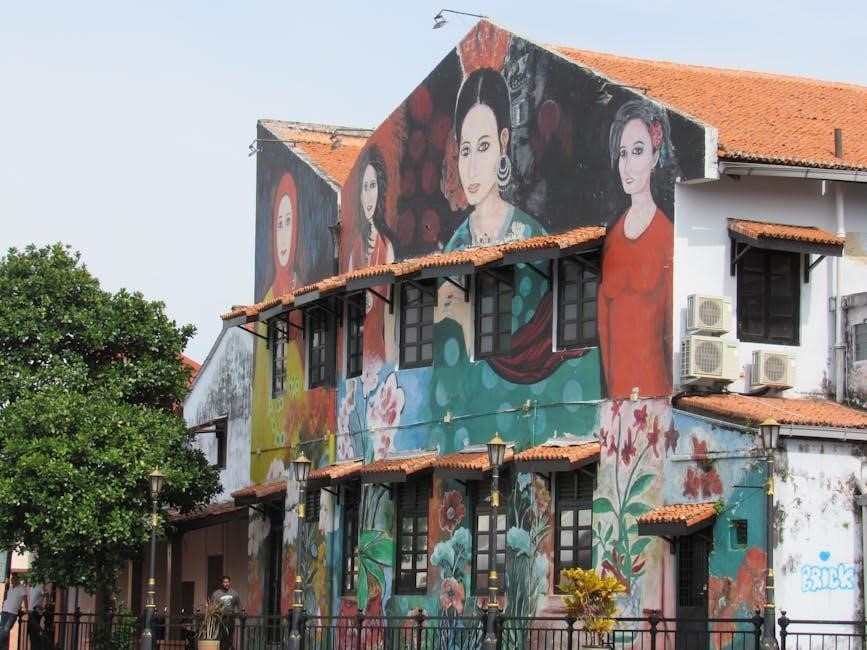
Challenging Traditional Narratives in Museum Curation
Anarchist principles encourage disrupting conventional curation methods, promoting decentralized storytelling and democratizing historical narratives to reflect diverse voices and perspectives, fostering a more inclusive cultural dialogue․
2․1․ Decolonizing Museum Spaces: An Anarchist Perspective
Anarchist thought advocates for decolonizing museums by dismantling hierarchical structures and challenging colonial narratives․ This involves redistributing curatorial power, amplifying marginalized voices, and creating spaces that reflect diverse histories and experiences․ By rejecting centralized authority, museums can become platforms for equitable representation and cultural justice, aligning with anarchist ideals of decentralization and collective empowerment․
2․2․ Questioning Authority in Historical Interpretation
Anarchist principles encourage challenging dominant narratives in historical interpretation, promoting diverse perspectives and democratizing knowledge․ By questioning institutional authority, museums can foster critical thinking and inclusivity, reflecting anarchist values of decentralization and anti-authoritarianism․ This approach empowers visitors to engage actively with history, rather than passively consuming curated narratives, fostering a more equitable and participatory cultural landscape․
Direct Action and Community Engagement
Direct action and community engagement are central to anarchist museum practices, fostering grassroots participation and collaborative decision-making․ By involving local communities, museums can become dynamic, inclusive spaces that reflect diverse voices and histories, aligning with anarchist principles of decentralization and collective empowerment․
3․1․ Grassroots Movements in Museum Governance
Grassroots movements in museum governance emphasize community-led decision-making, challenging traditional hierarchical structures․ By empowering local groups, these initiatives democratize cultural institutions, fostering inclusivity and representation․ Cooperative ownership models and collaborative planning ensure that museums reflect the diverse voices of their communities, aligning with anarchist principles of decentralization and collective action․ This approach creates more accessible, responsive, and equitable cultural spaces;
3․2․ The Role of Protest in Shaping Museum Policies
Protest has long been a catalyst for transforming museum policies, pushing institutions to adopt more inclusive and equitable practices․ Direct action challenges traditional power structures, demanding representation and accountability․ By amplifying marginalized voices, protests inspire museums to rethink their roles as public spaces, fostering greater accessibility and diversity․ This aligns with anarchist values of challenging authority and decentralizing decision-making processes․
The DIY Ethos in Museum Curation
The DIY ethos, rooted in anarchist principles, promotes community-led curation, empowering individuals to create and interpret exhibits, fostering creativity, inclusivity, and decentralization in cultural spaces․
4․1․ Crowdsourcing Exhibits and Interpretation
Crowdsourcing engages diverse communities in shaping museum content, reflecting anarchist values of collaboration and inclusivity․ By inviting public contributions, museums democratize narratives, ensuring exhibits resonate broadly and challenge traditional authority․
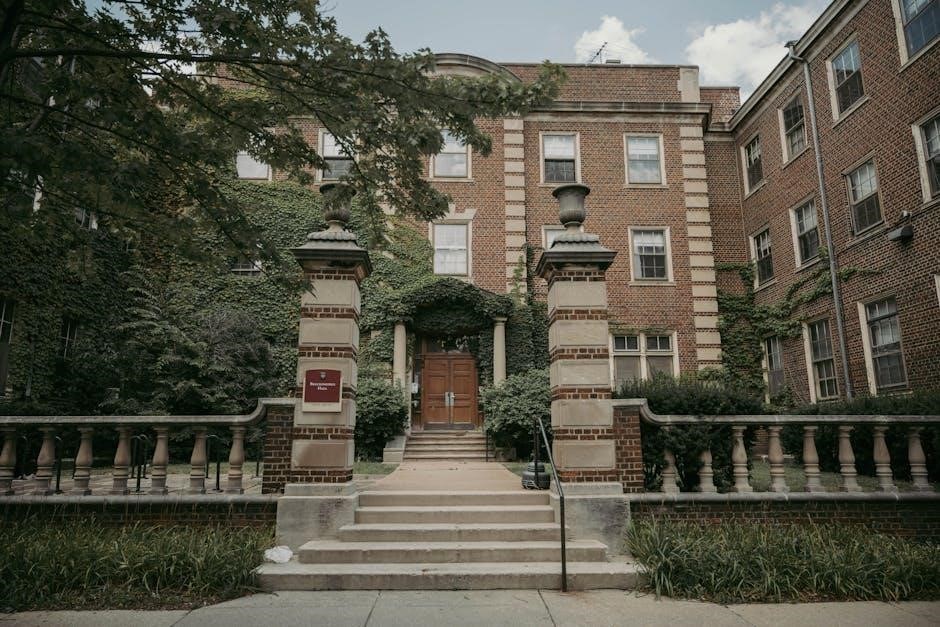
4․2․ Workshops and Hands-On Learning Experiences
Workshops and hands-on learning experiences empower visitors to actively engage with history, fostering a sense of agency and collaboration․ These interactive approaches, rooted in anarchist principles of decentralization and equality, encourage participants to co-create knowledge and challenge traditional hierarchies in education․ By prioritizing experiential learning, museums become dynamic spaces for dialogue, creativity, and collective growth․

Decentralized Governance Models
Decentralized governance models promote collaboration and shared decision-making, aligning with anarchist principles․ These models ensure cultural institutions reflect community needs and foster inclusive, equitable participation․
5․1․ Cooperative Ownership of Cultural Institutions
Cooperative ownership of cultural institutions aligns with anarchist principles by promoting shared control and collective decision-making․ This model empowers communities to directly influence museum operations, fostering inclusivity and equitable representation․ By eliminating hierarchical structures, cooperative ownership ensures that cultural spaces reflect the diverse voices and needs of their stakeholders, creating more democratic and responsive institutions․
5․2․ Eliminating Hierarchical Structures in Museum Management
Eliminating hierarchical structures in museum management aligns with anarchist principles by fostering flat organizational models․ This approach promotes collective decision-making, reducing authoritarian control and empowering all team members․ By dismantling traditional power structures, museums can become more adaptable, inclusive, and responsive to community needs, ensuring equitable participation and innovative cultural practices that reflect anarchist values of equality and decentralization․
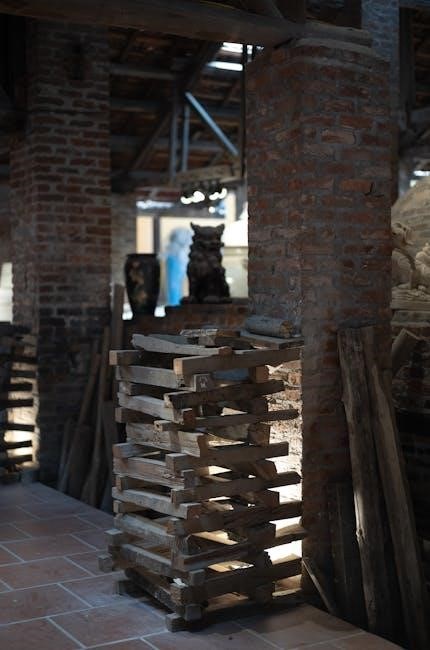
Accessibility and Inclusivity in Historic House Museums
Anarchist principles advocate for removing financial and physical barriers to access, ensuring historic house museums are inclusive spaces that reflect diverse community experiences and perspectives․
6․1․ Removing Financial Barriers to Access
Historic house museums can adopt anarchist principles by eliminating admission fees or offering pay-what-you-can entry, ensuring accessibility for all socioeconomic groups․ This approach aligns with anarchist values of equality and challenges traditional exclusionary practices․ Museums can also collaborate with local organizations to provide free tickets to underserved communities, fostering inclusivity and breaking down economic barriers to cultural engagement and education․
6․2․ Creating Physically Accessible Spaces
Anarchist principles advocate for inclusivity, emphasizing the importance of making historic house museums physically accessible to all․ This involves installing ramps, elevators, and accessible restrooms, as well as providing tactile exhibits and audio descriptions․ Such modifications ensure that individuals with disabilities can fully engage with cultural spaces, reflecting the anarchist commitment to equality and participation for everyone․
The Role of Radical History in Museum Exhibits
Anarchist thought encourages museums to showcase radical histories that challenge mainstream narratives, fostering critical engagement and amplifying marginalized voices to promote a more inclusive understanding of the past․
7․1․ Highlighting Forgotten or Marginalized Histories
Anarchist principles encourage museums to amplify overlooked narratives, challenging dominant perspectives by centering the stories of marginalized communities, laborers, and activists․ This approach fosters a more inclusive historical understanding, empowering visitors to engage critically with the past and its legacies, while promoting equity and representation in cultural spaces․
7․2․ Incorporating Anarchist Histories into Museum Narratives
Incorporating anarchist histories into museum narratives offers a radical shift in storytelling, emphasizing grassroots movements, labor struggles, and anti-authoritarian ideals․ By showcasing anarchist figures and events, museums can provide alternative perspectives on history, fostering critical thinking and challenging visitors to reconsider power structures and social change, while honoring the legacies of those who sought to dismantle inequality and oppression․
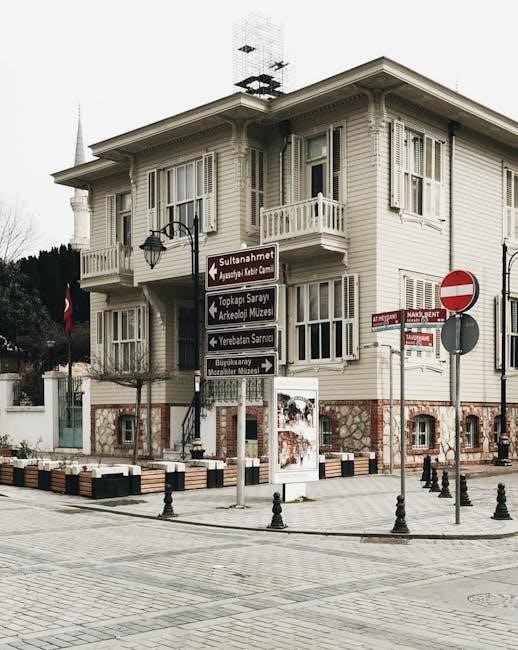
Anarchist Approaches to Museum Education
Anarchist approaches to museum education emphasize critical thinking, participatory learning, and the dismantling of hierarchical structures, fostering an environment where visitors are empowered to question and explore․
8․1․ Critical Thinking and Questioning Authority
Anarchist principles encourage visitors to critically analyze museum narratives, questioning dominant histories and authority․ This approach empowers individuals to think independently, fostering a space for open dialogue and mutual respect, where diverse perspectives are valued and explored collectively․
8․2․ Encouraging Visitor Participation and Agency
Anarchist-inspired museums promote visitor agency by encouraging active participation in exhibits and decision-making processes․ Interactive exhibits, collaborative projects, and open forums create shared ownership of cultural experiences, fostering a sense of community and inclusivity․ This approach breaks down the traditional spectator-museum dynamic, empowering individuals to contribute meaningfully to the cultural narrative․

Reimagining Museum Spaces
Anarchist principles inspire historic house museums to evolve into dynamic, interactive spaces fostering dialogue and shared cultural experiences, emphasizing community engagement and inclusivity․
9․1․ Transforming Static Exhibits into Interactive Experiences
Anarchist principles encourage museum spaces to shift from passive displays to engaging, hands-on experiences․ By incorporating interactive elements, visitors can actively participate in storytelling, fostering a sense of agency and connection․ This approach dismantles the traditional curator-visitor hierarchy, empowering individuals to co-create meaning and explore histories collaboratively, aligning with anarchism’s emphasis on decentralization and inclusivity․
9․2․ Creating Spaces for Dialogue and Debate
Historic house museums can foster dialogue by designing spaces that encourage open discussion and debate․ Anarchist principles suggest creating forums where diverse voices can engage with historical narratives critically․ Interactive panels, discussion areas, and collaborative activities empower visitors to share perspectives, challenging traditional authority and promoting collective understanding․ This approach aligns with anarchism’s emphasis on participatory, inclusive, and dynamic cultural engagement․
Overcoming Challenges in Anarchist Museum Practices
Anarchist museum practices face challenges like balancing radical ideals with practical realities and addressing resistance from traditional institutions․ These obstacles require innovative solutions to maintain authenticity and inclusivity while ensuring sustainability and broader acceptance of decentralized, community-driven cultural spaces․
10․1․ Balancing Radical Ideals with Practical Realities
Anarchist museums often struggle to reconcile their radical principles with the pragmatic demands of operation․ Limited funding, staff constraints, and institutional expectations can challenge the implementation of decentralized governance and inclusive practices․ Navigating these tensions requires creative problem-solving and collaboration to maintain the integrity of anarchist values while ensuring the museum’s sustainability and accessibility to diverse audiences․
10․2․ Addressing Resistance from Traditional Institutions
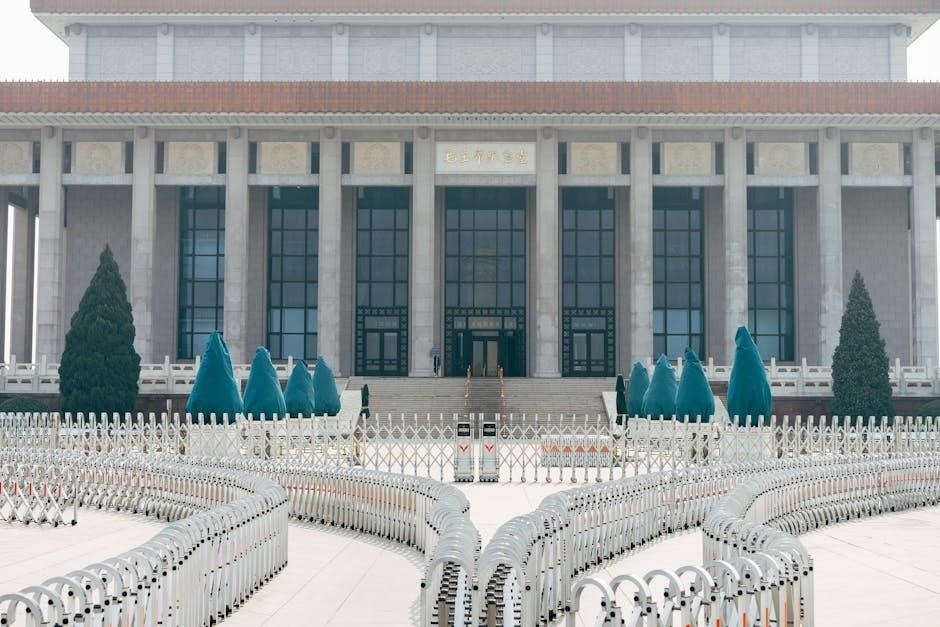
Traditional institutions often resist anarchist approaches due to their challenge to established power structures․ Museums embracing anarchist principles may face skepticism or opposition from funding bodies, stakeholders, or audiences accustomed to conventional curation․ Building alliances, fostering dialogue, and demonstrating the value of inclusive, decentralized practices can help mitigate resistance and gradually shift perceptions within the cultural sector․
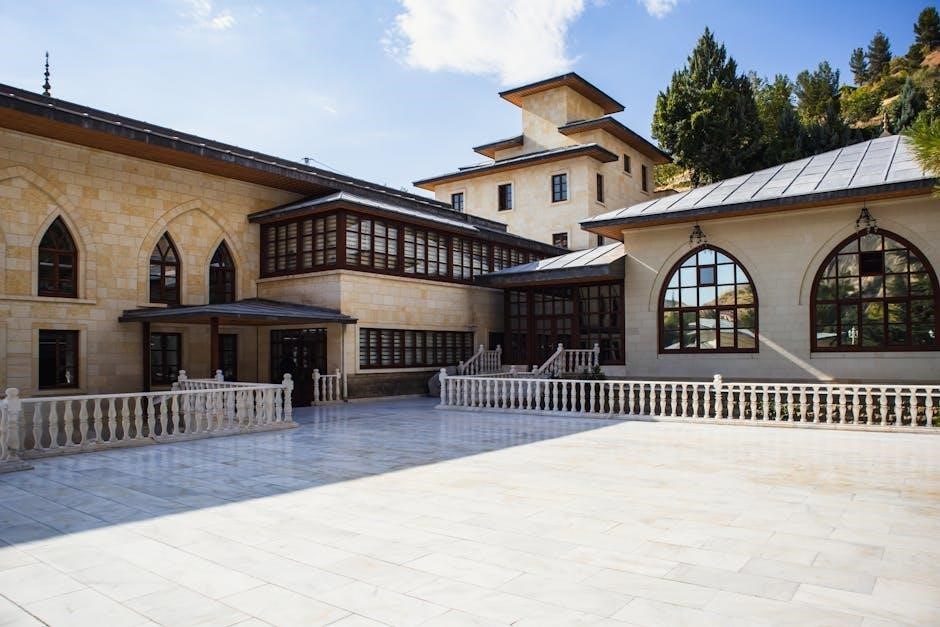
Case Studies of Anarchist-Inspired Museums
This section explores real-world examples of museums embracing anarchist principles, highlighting their innovative approaches to community engagement and challenging traditional narratives․
11․1․ Examples of Successful Community-Driven Museums
Community-driven museums, inspired by anarchist principles, often feature decentralized governance, participatory curation, and inclusive decision-making․ These spaces challenge traditional hierarchical structures by engaging local residents in exhibit design and programming․ Examples include museums that crowdsourced exhibits, eliminated admission fees, or transformed historic homes into interactive, dialogue-focused spaces․ Such models foster collaboration, empower marginalized voices, and redefine cultural institutions as tools for social change and community empowerment․
11․2․ Lessons Learned from Experimental Museum Projects
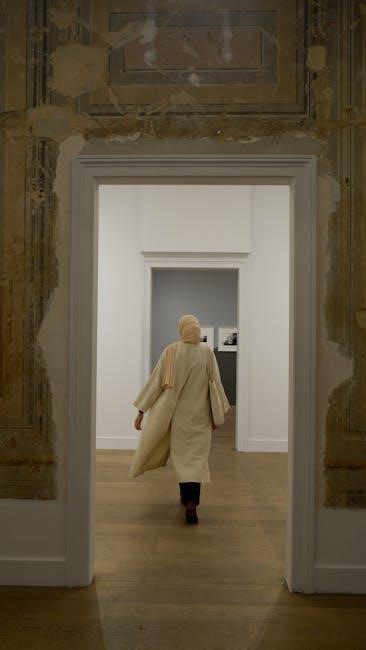
Experimental museum projects reveal the importance of adaptability and collaboration in anarchist-inspired spaces․ These initiatives often emphasize grassroots involvement, challenging traditional hierarchies, and fostering inclusivity․ Lessons include the need for continuous dialogue, balancing radical ideals with practical logistics, and the value of empowering communities to co-create cultural narratives․ Such projects demonstrate how museums can evolve into dynamic, people-centered institutions that reflect anarchist values of equity and participation․
Historic house museums can evolve into dynamic, decentralized spaces that empower communities and democratize cultural heritage, aligning with anarchist values of inclusivity, equity, and collective ownership․
12․1․ Envisioning a Decentralized, Inclusive Museum Model
A decentralized museum model prioritizes community ownership and participatory curation, breaking down hierarchical structures to create inclusive spaces where diverse voices and histories are equally valued and represented․
12․2․ The Potential for Anarchist Principles to Transform Cultural Institutions
Anarchist principles like decentralization and equitable participation can revolutionize cultural institutions, fostering inclusive, community-driven spaces that challenge traditional power structures and prioritize diverse narratives, enabling museums to become dynamic platforms for social change and radical cultural engagement․
